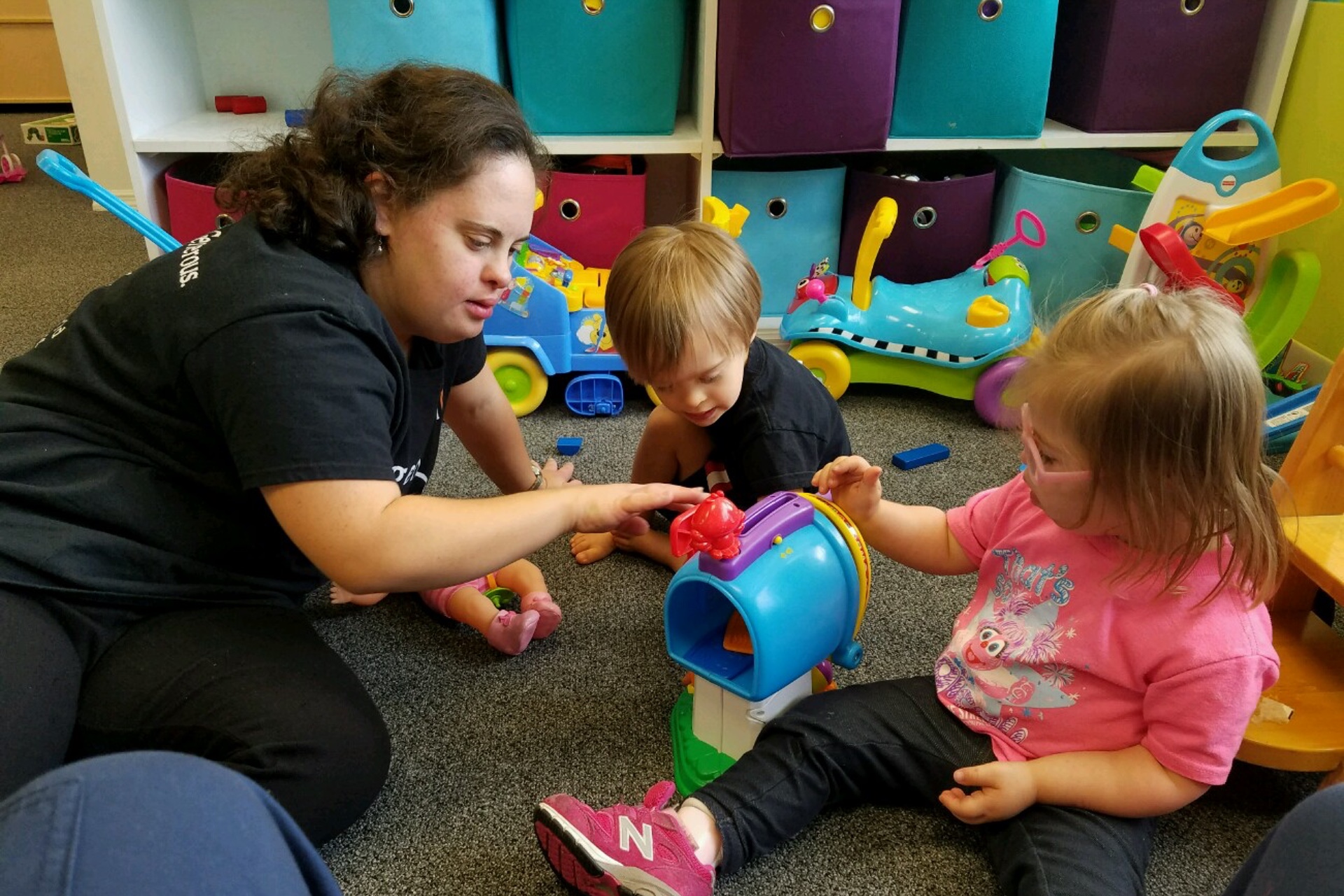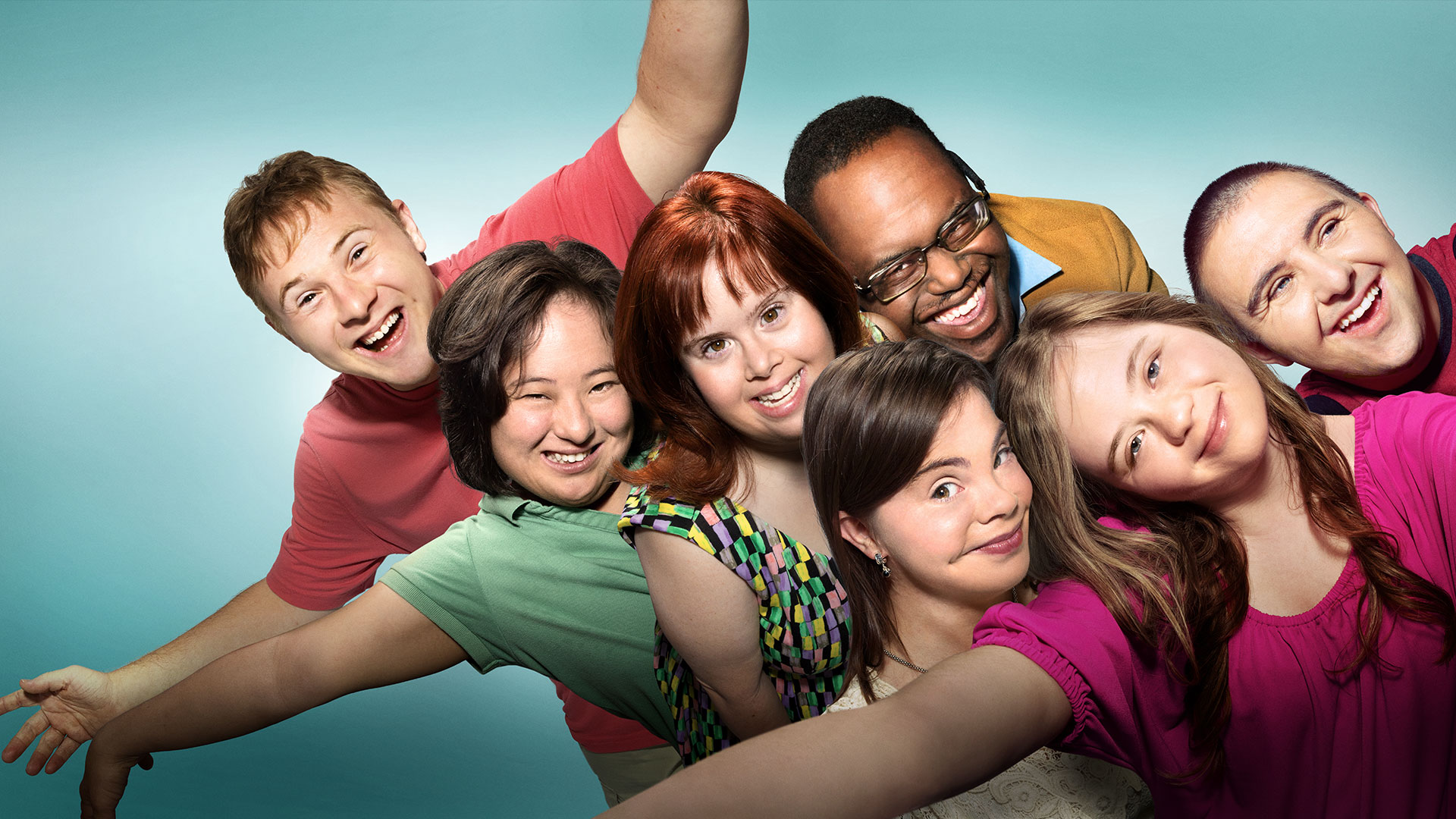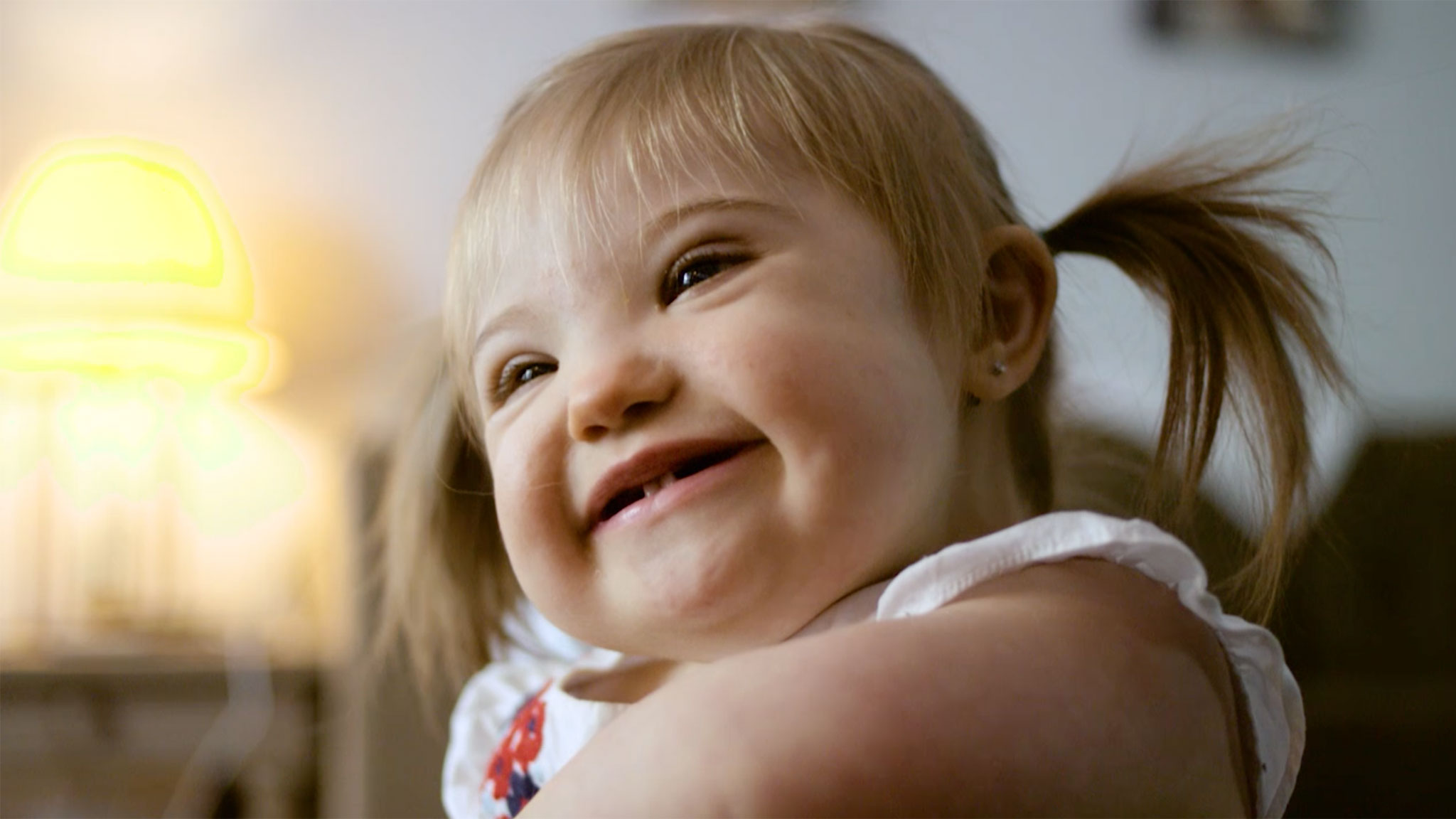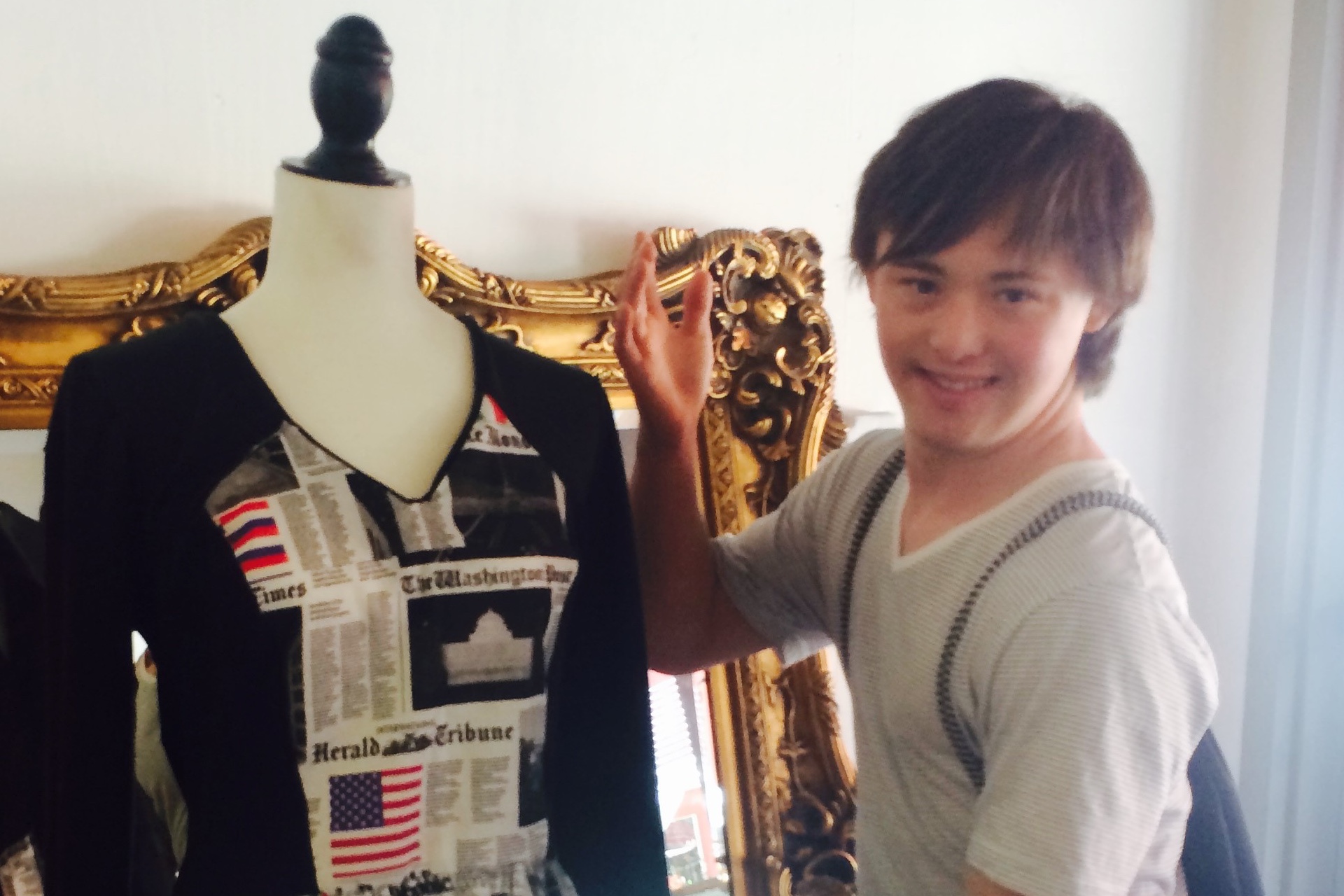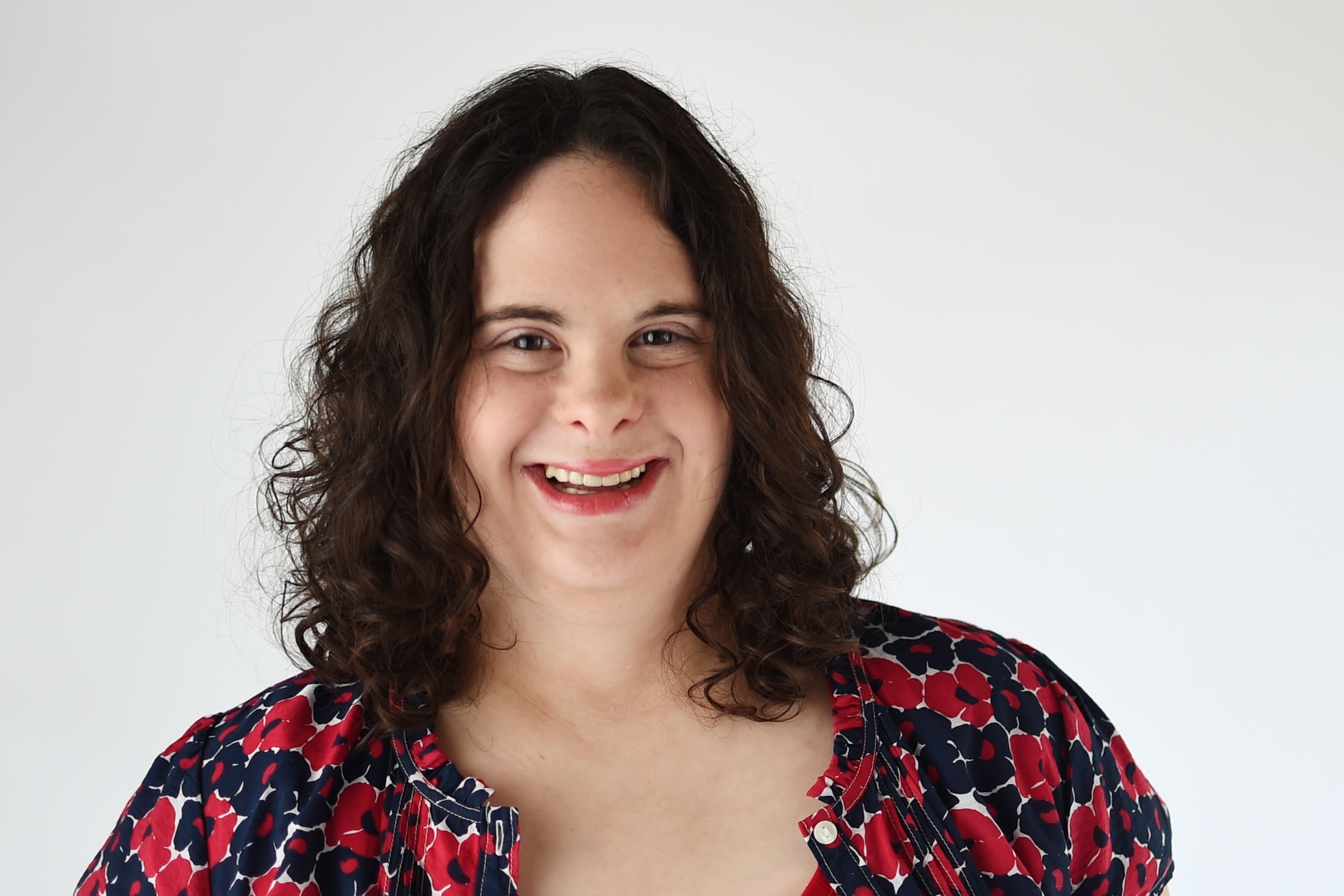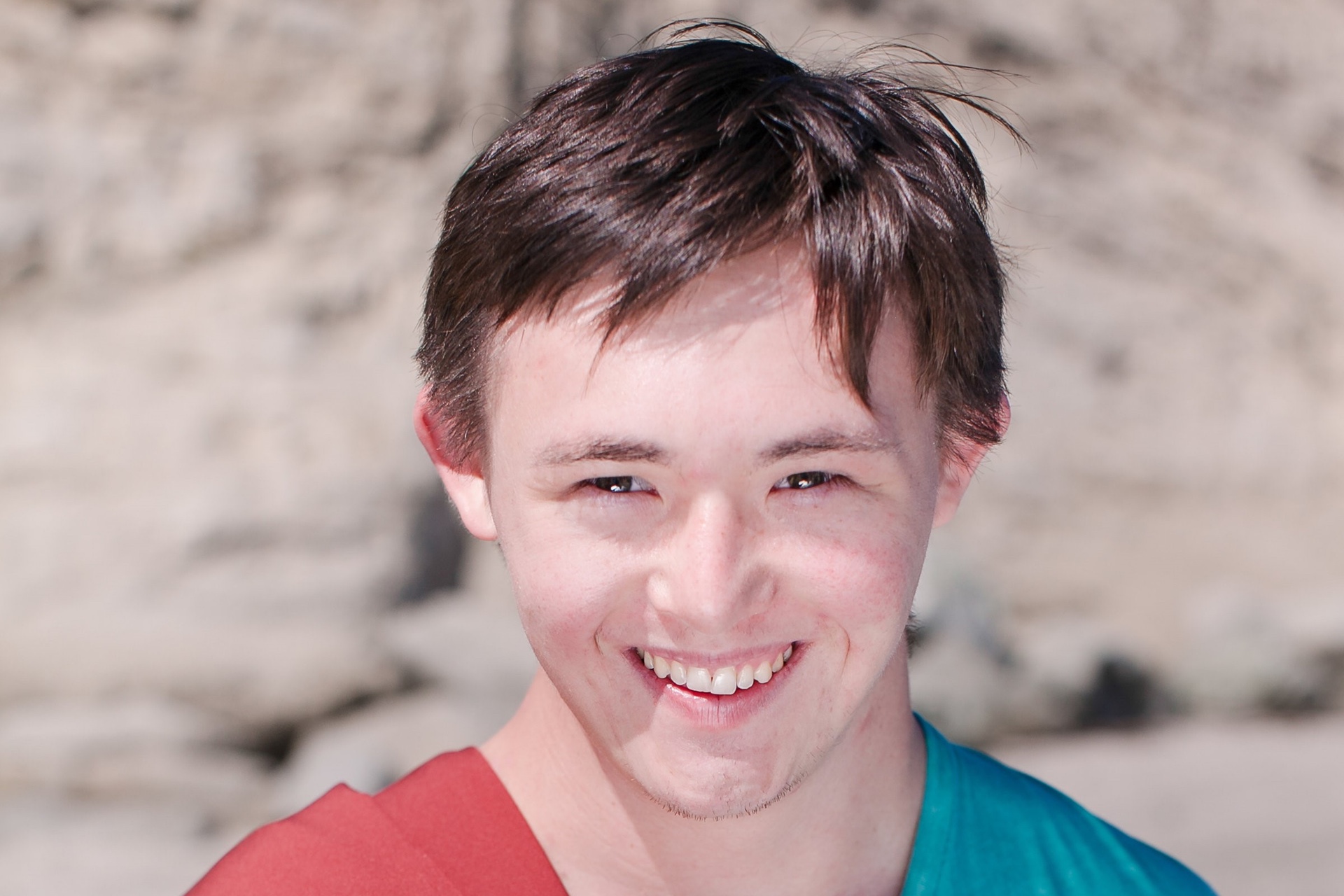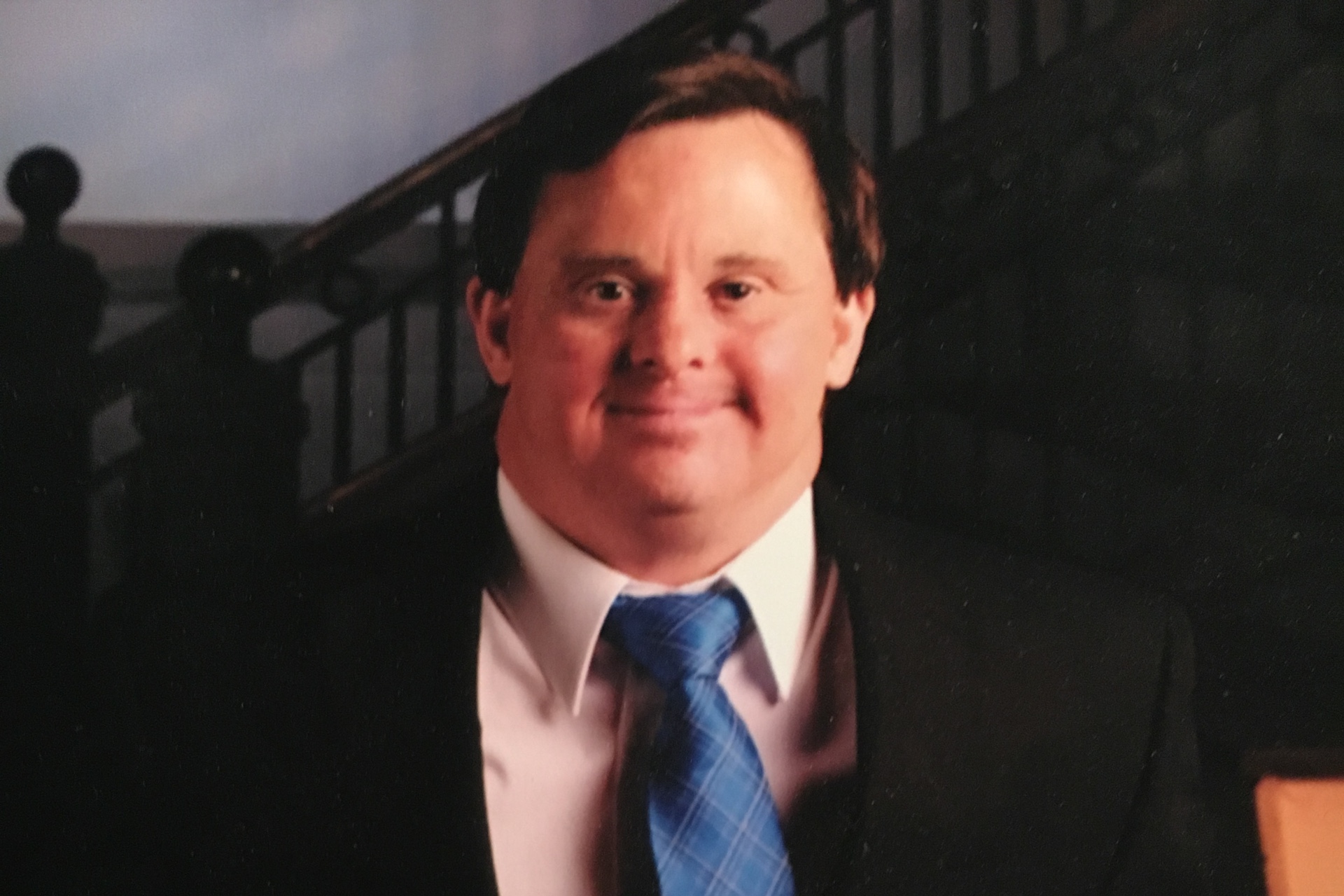Right about now, 20.5 million college students around the country are recovering from finals. Caryn Croll is one of them.
The New Jersey native studies American Sign Language at Raritan Valley Community College in Branchburg, NJ. She also takes a career development class to improve her job interviewing skills.
“I always wanted to pursue my passion of learning sign language and be able to teach little children to communicate better,” Caryn says. “Babies can learn to sign before they can talk.”
In between classes, Caryn interns at a nonprofit where she does office work, fundraising, and event planning. She also enjoys bowling and competitive swimming.
In many ways Caryn is just like the rest of the undergrads at school. But she’s also part of a much smaller, but growing, part of the college population: students with Down syndrome. In fact, in 2015 she become the first student with an intellectual disability to enroll at Raritan.
CREATING AN INCLUSIVE MOVEMENT
According to a 2011 report from the National Center for Education Statistics, from 2008-2009 (the last year data is available), college students with disabilities accounted for approximately 11.1 percent of all undergraduates. Of those students, about three percent, or 67,266, had an intellectual disability. (It’s important to note that these numbers are just best estimates – the federal government doesn’t collect statistics in this area, and there is no data on what percentage of those students with intellectual disabilities have Down syndrome, specifically.)
Because there is often confusion around the term, an intellectual disability – which is discovered in children before age 18 – makes common activities, such as reading, writing, understanding language, managing money, interacting with people, and developing routines, harder to learn. Down syndrome, otherwise known as trisomy 21, is an example of a condition that includes intellectual disability as one typical characteristic.
Those who work with college students with disabilities say they’ve noticed an increase over the last 10 years in the number of students with Down syndrome who are taking college classes, thanks in part to the inclusive higher education movement – the push to get colleges and universities to allow students with intellectual disabilities into general academic classes. Students with intellectual disabilities participate in typical college courses (often by auditing the course), and prepare for a career after college just like their peers without a disability.
Cate Weir, Program Director at Think College, a University of Massachusetts Boston project dedicated to developing, expanding, and improving inclusive education options for those with an intellectual disability, says she has seen an increase in people with Down syndrome going to college.
"Often kids with Down syndrome and their parents…work to get opportunities started at a college in their county or state," says Weir. "The energy of the Down syndrome community has maximized this movement and students with Down syndrome are participating more and more in college."
A New Generation of Students
With the Higher Education Opportunity Act of 2008 (HEOA), which was a reauthorization of an amended version of the Higher Education Act of 1965, there was a federal commitment to ensuring that more people with Down syndrome and other intellectual disabilities have a chance to pursue postsecondary education. The act helped provide access to federal financial aid by removing the requirement that students with intellectual disabilities have a standard high school diploma or pursue a degree to be able to access aid.
Those enhancements, coupled with the shift to include more special needs children in regular education classes through models of inclusion (where special needs students are virtually always in a regular education classes and receive accommodations where needed) from the more antiquated mainstream models (children are educated in both regular and special education classes), have resulted in a new generation of young adults with disabilities who have been around regular education students their whole lives. It’s no wonder these students want to attend college just as their “typical” friends do.
Wendy Harbour, Associate Executive Director for Programs and Development at the National Center for Students with Disabilities (NCSD), says the reasons people with intellectual disabilities give for going to college vary, just like with any other college student. “Some of them want to go because they’re focused on a job and want to have a career,” she says. “Others go because they really love learning or they think it sounds like fun and they want to have a good time. One of the biggest reasons I hear is that everyone else at their [high] school or in their family is going to college. They want to go, too.”
Weir estimates there are around 270 inclusive programs at colleges and universities around the country that have students with Down syndrome attending. In 2004 there were only around 25 – and they were hard to discover.
Getting a “Real” College Experience
Caryn, who is 30, didn’t go to college straight from high school – she attended a job program where she helped train therapy dogs and worked at a daycare. After Caryn discovered sign language, her mom Carol tried to find a college program that would be a good fit for her daughter, but had a hard time finding one. Eventually someone directed her to The Arc of Somerset County, an organization that helps people with intellectual and developmental disabilities. Coincidently, the organization was looking to work with a local college and develop a start-up program for people with disabilities. Raritan Valley Community College was eager to jump on board, and after just a few short months developing the program, Caryn started classes there.
Both Weir and Harbour say the goal is to get more colleges to create inclusive programs, and not stick students with disabilities in general life skills courses. The HEOA says that at least 50 percent of the time students with intellectual disabilities should be in classes with students without disabilities. But “that’s the floor, not the ceiling,” says Weir. “We’d like to see students really participating as much as possible in a fully inclusive campus.”
Students with disabilities don’t get a "real" college experience when they’re in programs that don’t focus on inclusivity. “You don’t really feel like a college student,” says Harbour. “I can give you a class on how to take a bus or make change, but if you have to use the bus to get to campus and buy your lunch at the student union, that’s a much better way to be learning your life skills.”
And students with Down syndrome want to be included. They have the same goal as many other people without a disability: independence.
Taking Risks
There’s still a lot of work to be done to actually get individuals into colleges. “For kids with intellectual disability, post-secondary education of any sort has really been hard to come by, and actually still is in many parts of the country,” says Weir.
According to Harbour, the pushback is typically from faculty and administrators. “How could a person with an intellectual disability do well in an intellectual environment?” she says. “It’s like assuming that people with learning disabilities can’t learn. I’ve seen people with intellectual disabilities who are very intellectual.”
Fortunately, students with disabilities have the law on their side. The Americans with Disabilities Act, passed in 1990, ensures that the civil rights of those with intellectual disabilities are protected in an educational setting. Colleges must provide reasonable accommodations for any student with a disability who requests them in advance. Examples of accommodations include notetaking services, additional time on tests, sign language interpreters and large print materials.
Parents, on the other hand, are typically on board the moment they hear about the programs, albeit with some small concerns. “Part of being in college is taking risks and failing and learning from that,” Harbour says. “It’s very difficult for some families because everything about special education is designed to protect students from taking too much risk or making bad choices. It is very difficult to grow as a college student if you are not taking chances.”
A Light at the End of the Rainbow
The financial burden of college is another hurdle that affects college students, disabled or not, and Caryn was able to get financial assistance with a scholarship from Ruby’s Rainbow, an organization that grants scholarships up to $5,000 to people with Down syndrome to pursue higher education.
Liz Platcha, founder of Ruby’s Rainbow, created the nonprofit six years ago in honor of her daughter Ruby, who was diagnosed with Down syndrome at birth, after reading books about the limitations placed on people with the disability. She "wanted the world to know and see what I saw in my daughter...and all people with Down syndrome."
But why focus on helping these individuals go to college? Platcha simply wants both of her daughters (her other daughter, Ella, is "typical") to experience life as independent women. “I learned so much more about myself and the world when I was pushed out into [it],” Platcha says. “I always envisioned Ruby doing that — going off into the world and having these opportunities.”
Platcha says by the fall of this year, Ruby’s Rainbow will have granted $430,000 to over 150 people “rockin’ that extra chromosome” who are going for their dreams of higher education and independence. The organization does fundraising throughout the year and works to create awareness of how “cool and capable” individuals with Down syndrome are.
Platcha adds that many of the scholarship recipients are becoming agents of change in their local communities and learning skills they’ll need to become more independent. “We have a lot of people who are breaking down barriers,” she says. Some of the students are living on campus and are full immersed in the college experience, but even the ones who are commuting are enjoying campus life, making friends, joining study groups, and going to games.
“I want that so badly for my own daughter...for her to have her own life and go out into the world and show everybody what she’s made of and do what she wants to do," says Platcha. "I think all parents want that for their kids.”
Profiles of Some Ruby's Rainbow Scholarship Recipients
Caryn Croll
In addition to being the first student at Raritan Valley Community College with Down syndrome, Caryn was also the first fully included student in her district as a child and received a regular high school diploma. She can’t wait to become a Signing Time instructor and help children, and adults, learn sign language so they can communicate better. She works at Gigi’s Playhouse, a nationwide network of achievement centers for individuals for Down syndrome, and swims in the Special Olympics. She’s also been a member of the New Jersey branch of the Special Olympics Athlete Congress for the past five years, where she’s involved with fundraising and supervising events, among other things.
What did you do in between high school and college?
Caryn: I was training therapy dogs. And I was [working] at a daycare program as well.
How is college different than high school?
Caryn: Well, a lot of studying and materials, of course.
How do you enjoy your classes so far?
Caryn: So far so good. It has its ups and downs.
What can be tough for you at school?
Caryn: Midterms and finals.
Carol (Caryn's mother), does Caryn aspire to live on her own?
Carol: She loves to cook, clean, plan her schedule, make transportation arrangements, food shop, and is quite capable of taking care of herself. New Jersey makes it very difficult and expensive, but hopefully affordable living will be available here or where she will choose to live in the near future.
What’s been your proudest moment with Caryn?
Carol: Every time she achieves one goal and sets another, big or small. We’re always proud of her!
Brandon Gruber
Brandon received international acclaim in 2015 when he raised money selling his artwork, so he could take 19 under resourced students at his high school to the winter formal and prom, all expenses paid. (He also purchased 21 yearbooks for students and gave three students scholarships to community college.) Brandon, who was crowned homecoming king a few months before, wanted to do something to inspire others to be kind to others. Not only is Brandon an artist, but he acts, designs fashion, and is a runway model — his resume includes walking in the 2014 Global Down Syndrome Foundation’s Be Beautiful Be Yourself show and the 2016 Fashion Art Santa Cruz show, where he was the first male with Down syndrome to model. That same year, he walked the runway at L.A. Fashion Week for Bezgrantiz Couture. Brandon’s also a philanthropist, having created a nonprofit called the 321 Life Project. And he juggles that all while going to college.
How do you like your classes?
Brandon: I love them. I love to learn to project my voice, to read, and to write better. And just stay fit forever. I love going to the library and studying with my classmates.
How is college different than high school?
Brandon: In college, it’s freedom. [I can be] whatever I want to be. High school is very cliquey.
Tell me more about your fashion design.
Brandon: Right now I’m just focusing on women’s fashion – skirts, dresses. Someday I would like to do some men’s clothes. They probably need more of it. I make clothes with my own artwork (a graphic designer helped turn his paintings into fabric). I sew, too.
What’s been your proudest moment?
Brandon: [Interning] for Congressman Sam Farr.
What are your goals for the next five years?
Brandon: I want to live in Hollywood where I [can be] in the arts – be an actor, model, or [in] the music industry. Hopefully I will be living on my own. And to get married someday.
Teresa (Brandon's mother), do you think they'll be a time where Brandon can live on his own?
Teresa: Oh, for sure. He cooks on his own. He takes the bus. He is very capable. There is nothing that he can’t do.
Mark Joseph Hublar
Mark is the oldest recipient of a Ruby’s Rainbow scholarship and a lifelong learner. He’s likely the only, or one of the only, recipients who wasn’t in inclusive classes throughout high school because separate special education classes were the norm. But a desire to go to further his education just like his brothers, pushed him to go to college when he was almost 50. He spent three years taking courses (with the help of a peer mentor) earning a certificate in public speaking. He now travels the country giving speeches and received the Laura Lee Self-Advocate Leadership Award at the 2016 State of the Art Conference at George Mason University.
Do you live on your own?
Mark: I’ve lived on my own since I was 24.
What do you like the most about living on your own?
Mark: I’m always going to love my mom and dad, but living on your own is a different story. I’m in the world. I’m still single, but I’m hanging in there!
What did you do in between high school and college?
Mark: I worked with my dad at a manufacturer, found my own job and worked at a McDonalds, and then I worked at Floyd Memorial Hospital [as a dishwasher]. After that was Walmart, where I was a greeter. After that, I went to work with my dad at Woodside Management, where I was a part-owner. We made bed frames and hired people with disabilities to work there.
How did you like your college experience?
Mark: It was cool. I liked that I had to study a lot. It helped me make new friends. [But] it was hard.
Now that you have your certificate in public speaking, is that what you do as a job now?
Mark: Yes. I go everywhere! In October I’ll be going to Seattle, WA. I love to talk to people. I want to be a motivational speaker.
Do you think people with Down syndrome have more opportunities now?
Mark: Oh, yes. Everyone needs to go to college who has Down syndrome. I did and they can do it, too.
